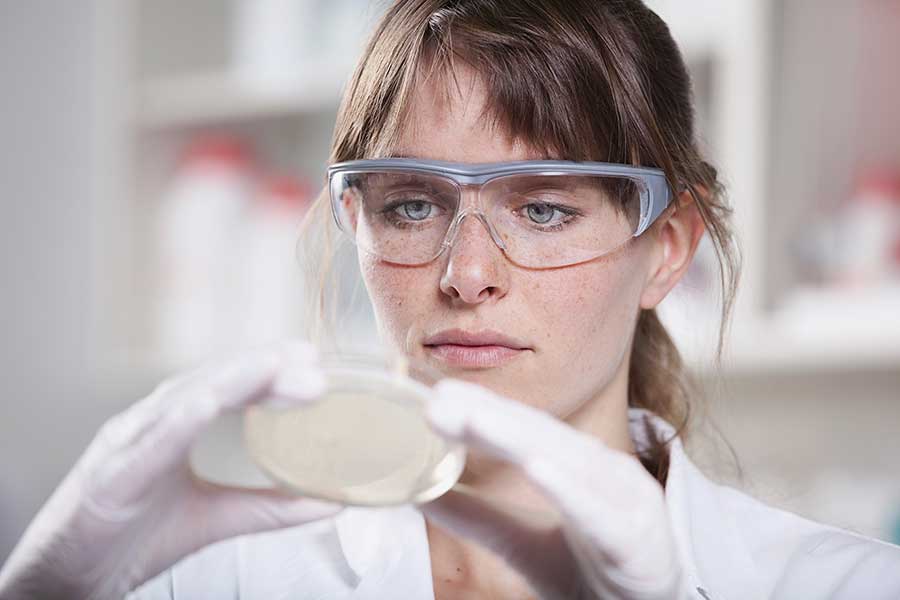
SERVIER PRESENTS ITS 2020/21 ANNUAL RESULTS, ITS R&D STRATEGY AND PIPELINE
At a press conference held online on January 18, 2022, Olivier Laureau, President of Servier, Pascal Lemaire, Executive Vice President, Finance, and Claude Bertrand, Executive Vice President R&D, presented the financial results and the Group’s Research and Development strategy and pipeline for financial year 2020/21.
Find the full annual results here.
The Servier Group revenue for the 2020/21 financial year increased by 4.3% compared to 2019/20 at constant exchange rates to reach €4.725 billion.
The revenue of brand-name medicines amounts to €3.306 billion for the 2020/21 financial year; i.e. a growth of 4.8% at constant rates. The revenue of generic drugs is up by 2.9% at constant rates, compared to the previous year, reaching €1.419 billion.
Revenue evolution is the result of a volume growth of 5.3%; i.e., €246 million.
Olivier Laureau: “In 2020/21, the Servier Group continued to grow despite a difficult environment. We have significantly strengthened our position in oncology with the acquisition of the Agios Pharmaceuticals’ oncology business. The oncology strategy that we initiated in 2017 is now bringing results with new medicines and future indications for patients with hard-to-treat cancers (…). We also strengthened our presence in key markets, particularly in Japan and the United States, while consolidating our production, bioproduction and R&D activities in France.”
The acquisition of Agios Pharmaceuticals oncology business demonstrates how the Group’s strategy in oncology is accelerating. Since the beginning of the 2020/21 financial year, Servier has allocated more than half of its R&D budget to the discovery and development of cancer treatments. The Group’s major investment in oncology is now reflected in the seven medicines now available to patients. The Group’s brand-name medicine revenue in oncology amounted to €604 million compared to €448 million in 2019/20, representing a 34.9% increase.
Sales of brand-name medicines in cardiometabolism amounted to €2.067 billion (i.e., 44% of Group revenue), down 3.2% at constant rates compared to 2019/20 (€2.221 billion) due in particular to a slowdown in sales in China.
The share of Group revenue generated outside the European Union remains stable compared to the previous financial year and represents more than half of the consolidated revenue; i.e., 51%. The Group has distributed over a billion boxes of medicines worldwide.
A strengthened and balanced pipeline
With 40 projects in clinical development, including 19 new molecular entities, and 36 research projects (data as of December 2021), resulting from significant and ongoing investment in R&D (more than 20% of brand-name revenue), Servier focuses its research and development efforts in therapeutic areas with high unmet medical need: oncology, neuroscience and Immuno-Inflammation.
Claude Bertrand: “Servier is pursuing the transformation of its R&D activity to deliver a new molecular entity every 3 years (…). The recent acquisitions have significantly strengthened our pipeline as well as our innovation capabilities in oncology. We now have a biotechnology center of expertise in Denmark, enhanced by our investment in bioproduction in France, as well as a new R&D center in Boston in the United States which will open in the spring of 2022. The Servier Research and Development Institute in Paris-Saclay, which is expected to open in 2023, will be the heart of the Group’s global R&D organization.”
Servier is also committed to an open and collaborative innovation dynamic, and is working with a network of diversified partners including pharmaceutical and biotech companies as well as academic laboratories. During the 2020/21 financial year, Servier entered new partnerships and reached significant milestones in oncology and neuroscience.
Pascal Lemaire: “The 2020/21 results demonstrate the strength of the Group and confirm its ability to successfully integrate new acquisitions. We are confident that we will achieve our 2025 goals and continue to serve patient needs across the world.”



